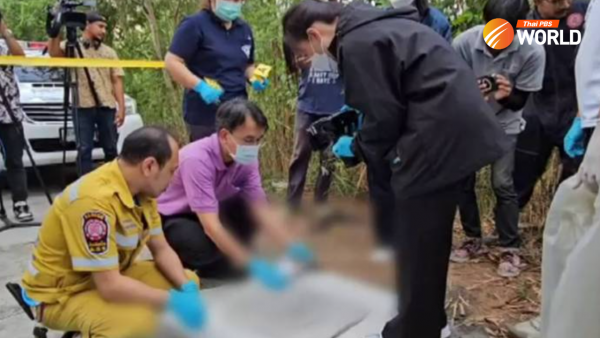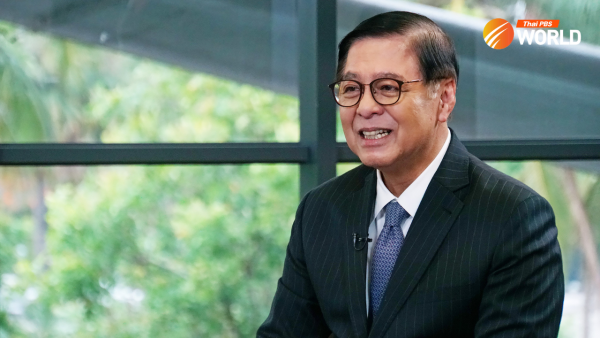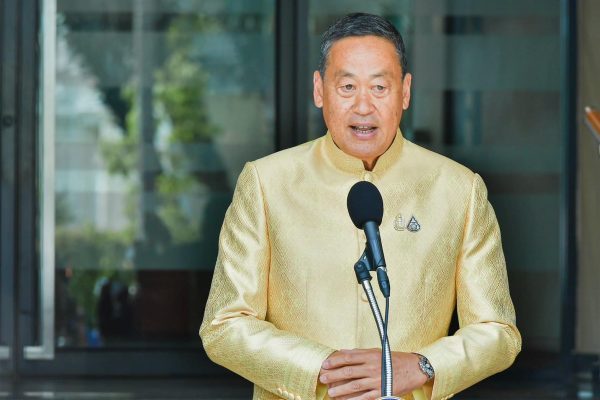What to expect inside (and outside) Parliament during charter-change debate this week

With political temperatures rising close to boiling point, lawmakers head to Parliament today and tomorrow (November 17-18) to deliberate seven motions seeking amendments to the Constitution.
The move comes after a September delay to the charter-change process triggered uncertainty, distrust, political manoeuvring and a tug-of-war between proponents and opponents.
The issue has become a potentially explosive political game, raising concern of possible violence between the two sides.
Critics foresee lingering political conflict even if some amendment bills sail through the first reading, though many warn of moves that will further delay the amendment process.
Meanwhile, clashes are feared as demonstrators from both sides – the youth-led anti-establishment movement and the royalists – move to deploy huge crowds outside the new Parliament in Dusit district’s Kiak Kai area of Bangkok today.
The former will press lawmakers to pass the “people’s amendment draft”, while the latter will gather to oppose any change to the supreme law.
What is Parliament deliberating?
The push for charter change hit a snag in late September when parliamentarians voted to set up a special committee to study six draft amendments, thus delaying the vote. The panel will submit the findings today for lawmakers to study before they vote in the first reading.
The seven draft amendments can be divided into three groups according to their provisions.
Two of the drafts, proposed by the government coalition and five opposition parties, would amend Article 256 to pave the way for a Constitution Drafting Assembly (CDA) to rewrite the charter – but without touching Chapter 1 on general provisions and Chapter 2 on the monarchy.
Four motions proposed by opposition parties, including Kao Klai (Move Forward), would reduce the power of military-appointed senators enshrined in Articles 270, 271 and 272, scrap the executive orders of the National Council for Peace and Order (NCPO) by revoking Article 279, and change the electoral system.
The NCPO, often referred to as the military junta, was set up after the May 22, 2014 coup which ousted the elected Yingluck Shinawatra government.
Meanwhile the seventh bill, proposed by civic group iLaw, would rewrite the entire Constitution, including Chapters 1 and 2, via fully elected charter-drafting assembly. This bill will make its debut on the agenda today.
Voting is scheduled for Wednesday, when each member will say yay or nay in a roll call for all seven bills. The voting is expected to take around four hours, and votes from at least half of both chambers are necessary to pass a motion in the first reading, including at least a third or 84 of the 250 senators.
-
What chances for charter change bills in Parliament this week?
-
Opposition pledges to support all 7 draft constitutional amendments
-
Senators ask Chuan to seek Constitutional Court ruling on constitutionality of 3 draft charter amendments
People’s bill hangs in the balance
The first two bills sponsored by the government and opposition paving the way for a new charter were not just supported by both camps, but it is believed that at least 84 senators also back the bills, and are thus likely to pass. However, there is zero chance that iLaw’s bill will get the nod.
There is strong public focus on this so-called “people’s bill”, which is backed by more than 100,000 voters and aims to erase the legacy of the 2014 coup. The first people-proposed charter draft is unique as it seeks to change the entire Constitution, but most notably the chapter on monarchy which has been left untouched over decades of different Thai Constitutions.
The anti-establishment protest movement has made it clear that only the people’s bill is acceptable to them, but the powers-that-be will almost certainly block its passage.
Six opposition parties on Monday resolved to vote yes to all seven drafts, including iLaw’s motion, which they saw no reason to reject as it represents “the voice of the people”.
However, coalition parties and the Senate are almost certain to block the bill, citing the untouchable and sacrosanct status of chapters on the monarchy. However, the government whip said yesterday that lawmakers would listen to the debate before making any decisions.
Stithorn Thananithichot, a political scientist from King Prajadhipok’s Institute, believes senators and ruling Palang Pracharath MPs will vote to counter the pressure from protesters.
“If they think the protests are weakening, they will vote down iLaw’s bill,” he said.
The National Security Council last week told Cabinet that the number of anti-government protesters was falling, which the government took as a positive sign.
Uncertainty, distrust loom
While it is most likely that the government and opposition-backed bill to pave the way for a CDA will be approved, critics are doubtful that any bill will actually sail through all readings. Instead, they expect senators and government MPs who strongly oppose a charter rewrite to employ delaying tactics.
Wanwichit Boonprong, a political scientist at Rangsit University, said Prayut’s failure to send senators a signal to pass the bills is a clear indication there will be no smooth path to approval for the bills.
Prayut has instead been sending mixed signals. Last month, during a special parliamentary debate on the crisis, he announced he was backing charter change. But last week he said he would not interfere in the amendment process.
The junta-appointed senators, who form the largest group in the 750-seat Parliament, have joined with the ruling Palang Pracharath to block changes to the Constitution.
In late September, the lawmakers angered protesters with their decision to delay the charter vote by setting up a special committee to study the drafts.
Last week, a group of senators and Palang Pracharath MPs, led by its deputy leader Paiboon Nititawan, submitted a parliamentary motion to seek a Constitutional Court ruling on whether the three drafts paving the way for a new charter are even constitutional.
If lawmakers agree to seek a court review, charter change will hit another snag.
Wanwichit expects to see more delaying tactics this week, with lawmakers either asking to set up another panel or seeking a court ruling on whether a referendum should be held before Parliament votes.
But the man to watch for clues on what will happen is Paiboon.
“You can read a signal from Paiboon’s moves. Every move he makes is the final directive. I think he is getting the green light from ‘high-ranking’ people in government [to make these moves].”
Fear of clashes
Security is tight and hundreds of police officers have been deployed to maintain order in Parliament as the two opposing sides prepare to gather outside to monitor the debate.
Pro-democracy group Ratsadon has called for its supporters to “lay siege” to Parliament on Tuesday from 3pm onwards and remain there until lawmakers vote yes to iLaw’s draft.
Student leader Jutatip Sirikhan said that if lawmakers fail to pass the “people’s bill” this time, they would suffer an escalation of anti-establishment protests.
In a bid to avoid confrontation, Warong Dechgitvigrom, leader of ultraroyalist pro-establishment Thai Pakdee (Loyal Thai) group, has called on supporters to gather outside Parliament from 9am to 2pm to protest any charter rewrite.
Protests will continue
Whatever the outcome in Parliament this week, observers see no end in sight for anti-establishment rallies. But the fate of the “people’s bill” will play a key role in whether tensions rise even higher.
“The protesters have thrown their support behind the iLaw bill, but if it is voted down it will add fuel to the fire. The government should be prepared for rallies to intensify and protesters to make more demands,” said Yuthaporn Issarachai, a political scientist from Sukhothai Thammathirat Open University.
Meanwhile, the anti-establishment movement has vowed not to compromise on its three core demands amid reports they were being pressed to tone down their calls.
Protest leader Parit “Penguin” Chiwarak said that while Prayut remains as premier, it was impossible to have a more democratic Constitution. Meanwhile rewriting the charter without touching on the monarchy-related chapter would be like refusing to make progress for fear of treading on someone’s toes, he added.
“There will be no compromise while there is no justice,” Parit told the crowd at a rally in Bangkok on Saturday.
By Thai PBS World’s Political Desk






